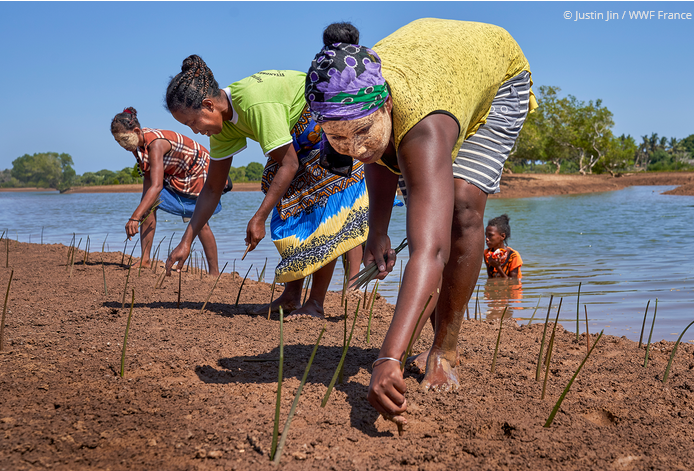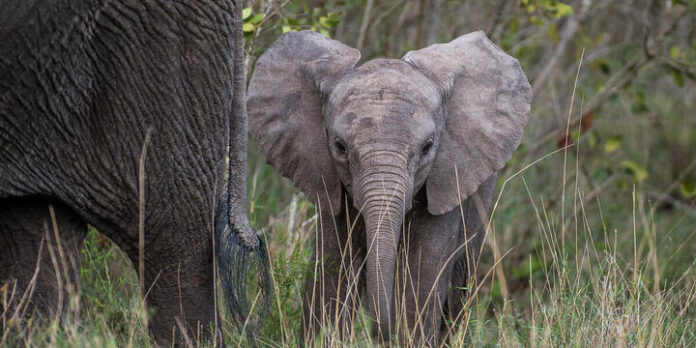By Winnie Kamau
Nairobi, Kenya:Experts have warned of a devastating catastrophe facing humanity as the population of all wildlife animals including mammals, birds, amphibians, reptiles and fish have dropped by 69% on average since 1970, according to World Wide Fund for Nature (WWF) Living Planet report(LPR) 2022.
The report highlights the stark outlook of the state of nature and urgently warns governments, businesses and the public to take transformative action to reverse the destruction of biodiversity.
In Africa it has seen a 66% fall in its wildlife populations over the 48 years with data showing America has the greatest regional decline in average population abundance by 94% as well as Asia Pacific’s overall 55% drop.
 Around the world, the report indicates that the main drivers of wildlife population decline are caused by habitat degradation and loss, exploitation, the introduction of invasive species, pollution, climate change and disease.
Around the world, the report indicates that the main drivers of wildlife population decline are caused by habitat degradation and loss, exploitation, the introduction of invasive species, pollution, climate change and disease.
With its biggest dataset yet, featuring almost 32,000 populations of 5,230 species, the Living Planet Index (LPI), provided within the report by ZSL (Zoological Society of London), shows it is within tropical regions that monitored vertebrate wildlife populations are plummeting at a particularly staggering rate. WWF is extremely concerned about this trend given that these geographical areas are some of the most bio-diverse in the world.
In less than a lifetime, monitored freshwater populations have fallen by an average of 83%, the largest decline of any species group. Habitat loss and barriers to migration routes are responsible for about half of the threats to monitored migratory fish species.
“The Living Planet Report 2022 reflects on the continued decline of key species and biodiversity loss. Africa recorded a decline of 66% in wildlife populations since 1970, with Kenya falling in the threat hotspots region because of the decline of key species and degradation of key habitats. When you see 66% of decline in Africa, it doesn’t mean we are doing better. It means we are not as badly affected as in some places” said Drew McVey, Wildlife Crime Initiative Technical Advisor for East Africa, WWF.
“We need to create and move from dealing with events to addressing system tipping dynamics where we have agents of change and a mix of interventions that can trigger and potentially accelerate transformative pathways to sustainable use and production. The Living Planet Report proposes that we create enabling conditions and look for leveraged points that can help drive the agents of change to deliver more. To reverse this nature loss and achieve recovery of key species, will require ambitious commitments nationally and more importantly from world leaders at the next 15th Conference of Parties to the Convention of Biological Diversity (CBD COP15) in Montreal, Canada,” said Jackson
Kiplagat, Head of Conservation Programs at WWF-Kenya,
World leaders are due to meet at the CBD COP15 this December for a once-in-a-decade
opportunity to course-correct for the sake of people and the planet. WWF is advocating for leaders to commit to a ‘Paris-style’ agreement capable of reversing biodiversity loss to secure a nature-positive world by 2030.
 “The LPR report makes clear that delivering a nature-positive future will not be possible without recognizing and respecting the rights, governance, and conservation leadership of Indigenous Peoples and local communities around the world,” said Alice Ruhweza, Africa Regional Director, WWW-International.
“The LPR report makes clear that delivering a nature-positive future will not be possible without recognizing and respecting the rights, governance, and conservation leadership of Indigenous Peoples and local communities around the world,” said Alice Ruhweza, Africa Regional Director, WWW-International.
“We are the generation who inherited the world from pioneers of yesteryears and our great contribution will be anchored on sustainability. It is a race against time to save what is left of our home. Every minute counts. Just like in a marathon” noted Dr. Eliud Kipchoge, renowned world marathon and nature champion.
The report argues that increasing conservation and restoration efforts, producing and consuming food in particular more sustainably, and rapidly and deeply de-carbonizing all sectors can mitigate the twin crises. The authors are calling upon policymakers to transform economies so that natural resources are properly valued.














